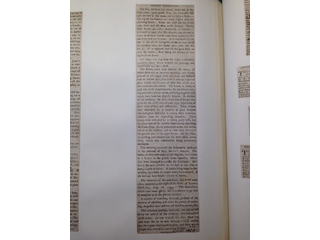Transcription
FURTHER PARTICULARS.
The fire, we have just heard, broke out in the lamp room; some sparks from the fire-works fell upon the tow in the room, and set it in a blaze.—The top of the Theatre was much higher than the adjoining houses, and the roof in falling did them much damage. Nearly forty houses are either destroyed or injured.—It is said by some that Mr. ASTLEY was not put of town, or at least that he came home before the fire had destroyed his Theatre. It is rumoured that he was in the act of taking his mother-in-law out of the window, when the beams gave way, and she fell in. It is supposed that she had gone back to save the money; there being the receipts of two nights in the house.
Her corps was dug from the ruins, a miserable spectacle, about eleven o’clock this morning, and immediately put into a shell.
The flames, when they reached the scenes, of which there was an immense quantity, and chiefly painted in oil, raged with such fury, and diffused such an intense heat, that there is scarcely a pane of glass within the distance of fifty feet which was not cracked or shrivelled. The houses in front, at each side of the Amphitheatre, the inhabitants having received a timely alarm, and being supplied with water, have been but slightly injured. In the rear of the building, the first intimation of danger was given by the shrill cries from pigs, expressive of their sense of heat and suffocation. These houses were inhabited by a number of poor families, who had the great difficulty in saving their numerous children from the impending calamity. These houses were defended by a strong partly wall, by the great depot of the scenery immediately adjoining, the flames on the timbers, and in that way destroyed the greater part of the upper floors. Of the Theatre noting now remains but the mere shell, every thing which was combustible being completely destroyed.
This morning presented the melancholy spectacle of the removal of Mrs. SMITH’s remains. The cones, they were successively dug out, were taken in a basket to the public house opposite, where they were arranged in a coffin for interment. Her fate is the more pitiable, as she had at one time a near prospect of safety, a ladder being raised to her window, by which she might easily have escaped, if she had not been fatally induced to return.
The visitation of the same kind, and in the same place, occurred on the night of the Duke of YORK’s Birth-day, August 16, 1794. The destruction which then took place, and in a familiar way, was as complete as in the present instance.
A number of wretches, as usual, profited of the moment of affliction, and under the pretext of assisting, despoiled the sufferers of watches, spoons, &c.
This nefarious practice, however, was put to an end by the arrival of the volunteers and soldiery, who maintained strict order. At one o’clock yesterday, there was still some fire to be seen through a thick smoke, but the engines had ceased to play, as there was no danger whatever of its spreading further.
